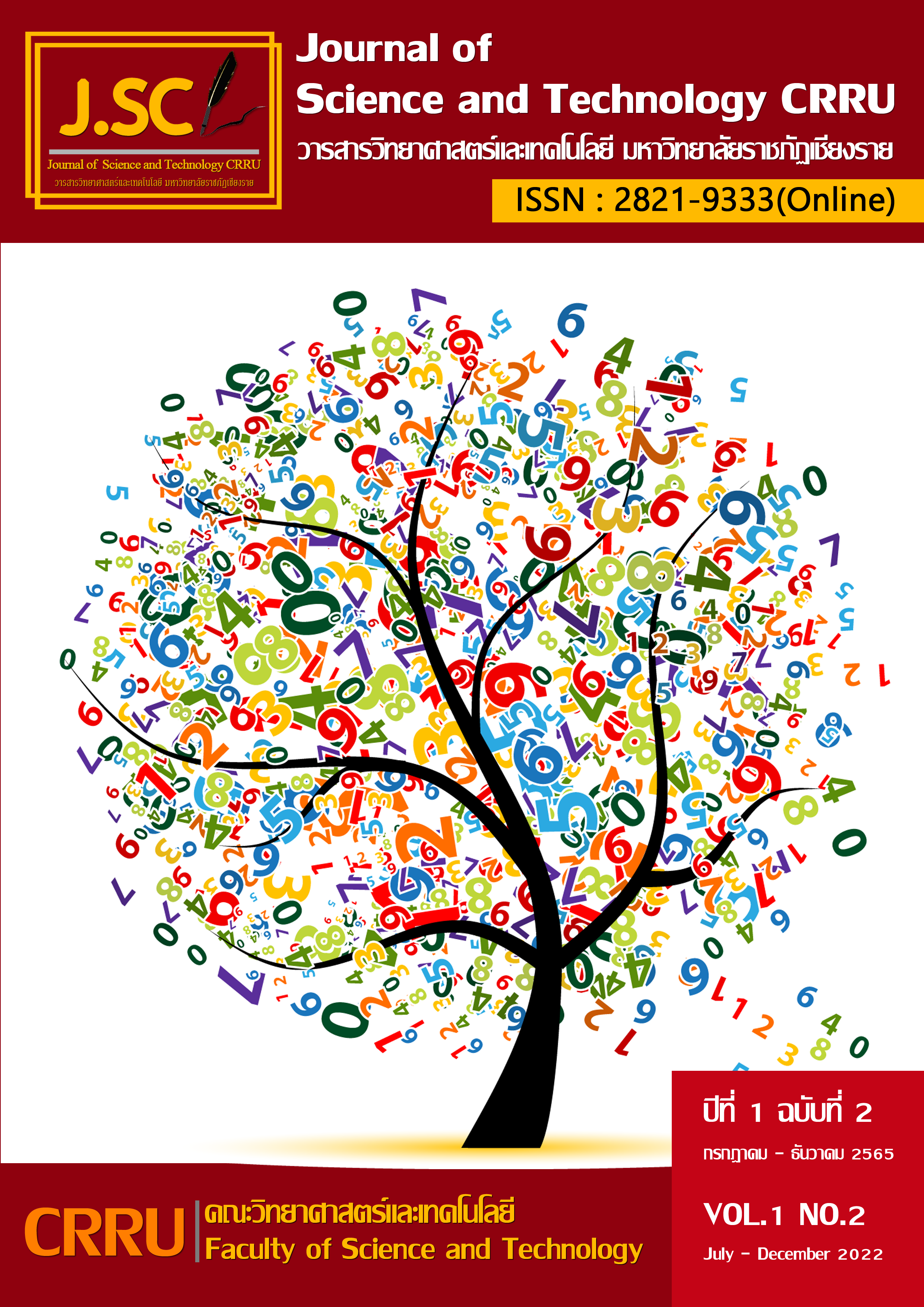KIC 5956776 : from Light Curve Acquiring to Absolute Dimension Determining
Main Article Content
Abstract
This research aims to explain the process of obtaining light curve from the Kepler Space Telescope Database, the analysis of light curve fitting by using the Wilson & Devinney code that provide relative physical parameters, and the way proposed to estimate absolute physical parameters of eclipsing binary KIC 5956776 when radial velocity curves are absent. The light curve of the system presented as one of the Beta Lyrae type. The results of light curve analysis suggested that the absolute physical parameters of primary and secondary stars respectively are as follows: Temperature T1 = 3737 K and T2 = 6946±128 K. Potential energy at the star surface 1 =3.78±0.01 and
2 = 3.49±0.01. The inclination of the orbital plane
is 77.09±0.07 degree. The average radius of the primary and secondary stars are
1average =0.315±0.001
/a and
2average = 0.327±0.01
/a , respectively. Assuming that both primary and seconday stars are main-sequence stars. The radius of each star can be calculated as
1 = 1.00 ± 0.01
and
2 = 1.04 ± 0.01
. This makes it possible to calculate reversely back and get the value of a semi-major axis (
) of 3.17 ± 0.01
and therefore
1 = 1.00 ± 0.01
,
2 =1.05 ± 0.01
, q= 1.05 ± 0.01, as the result.
Article Details

This work is licensed under a Creative Commons Attribution-NonCommercial-NoDerivatives 4.0 International License.
Journal of TCI is licensed under a Creative Commons Attribution-NonCommercial-NoDerivatives 4.0 International (CC BY-NC-ND 4.0)
References
Terrell, M., & Wilson, R.E. (1992). Binary Stars A Pictorial Atlas, Florida : Krieger Publishing.
Aindang, A., Inkum, R., Sarotsakulchai, T., & Surina, F. (2018). Kepler-TESS Light Curve Analysis of KIC 10417986 as a Practical Example for Astronomical Research in Schools. J. Phys. Conf. Ser., 1719 012017.
Hu ̈mmerich, B., & Srdoc. (2013). Twenty New W Ursae Majoris-type Eclipsing Binaries from the Catalina Sky Survey. Vistas in Astronomy, 12, 11.
Kjurkchieva, D., Vasileva, D. & Dimitrov, D. (2016). Light Curve Solutions of 12 Eccentric Kepler Binaries and Analysis of Their Out-of-eclipse Variability. The Astron. J., 152(6), 189.
ฟ้ารุ่ง สุรินา บุญทิศ. (2565). ฟิสิกส์ดาราศาสตร์เบื้องต้นของโนวา (Introduction to Astrophysics of Nova Eruption). กรุงเทพฯ : ดีเซมเบอรี่.


